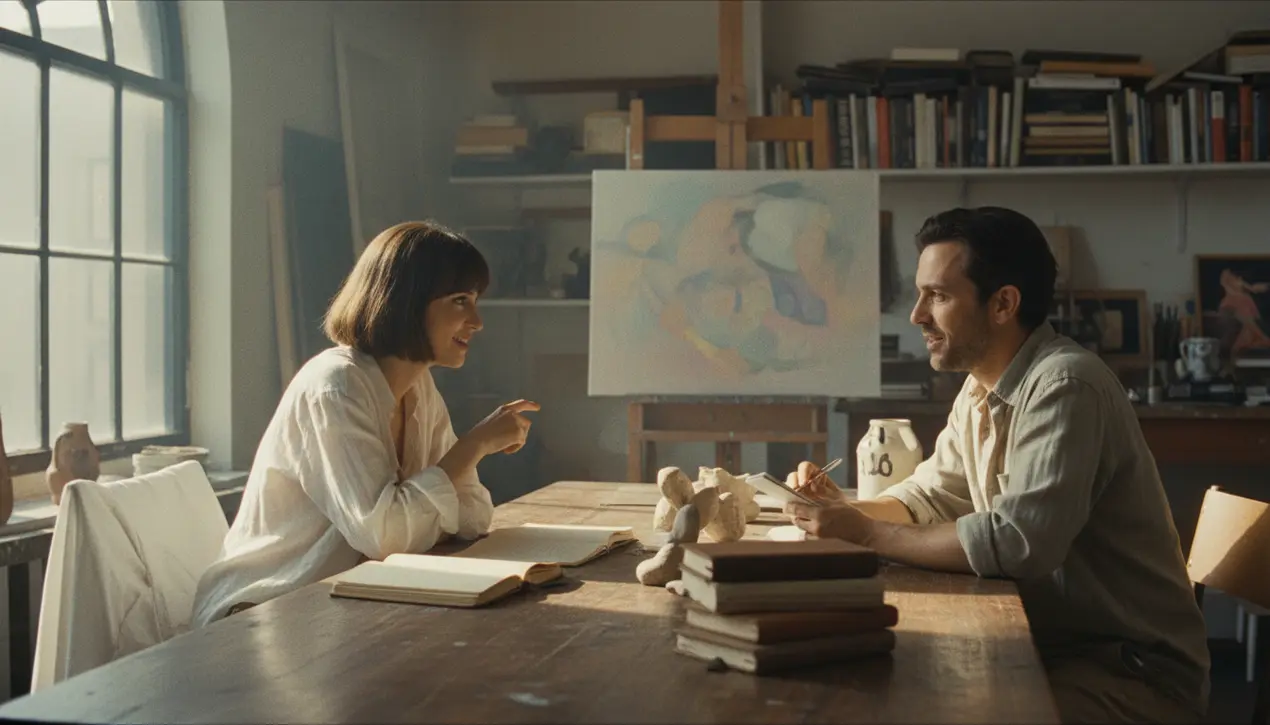
Entertainmentawards & festivals
What Sofia and Roman Coppola’s mother taught them about creativity
AM
Amanda Lewis
2 hours ago7 min read1 comments
While the towering legacy of Francis Ford Coppola inevitably casts a long shadow over any discussion of his children's cinematic careers, it was their mother, Eleanor Coppola, who provided the quiet, foundational soil from which Sofia and Roman's distinct creative sensibilities grew. This nuanced truth emerges poignantly from Sofia’s introduction to 'Two of Me: Notes on Living and Leaving,' Eleanor's posthumous memoir published by A24, where she credits her mother with teaching her 'how to be in charge without being loud, and the importance of being real'—a lesson in artistic integrity that resonates through Sofia’s entire filmography.In a recent New York City conversation moderated by Vogue’s Keaton Bell, the Coppola siblings unpacked the profound, often unconventional artistic education they received from a woman who was herself a formidable, if sometimes overlooked, creative force. Eleanor, an artist and filmmaker who worked in mediums from sculpture to conceptual art, fulfilled one of her final wishes with the publication of this memoir, a decade-long project culled from fifty years of diaries; her other dying directive was to have her 100 hours of behind-the-scenes footage from Sofia’s 'Marie Antoinette' edited into a documentary, slated for a 20th-anniversary release—a final, meta-cinematic gift.Her own artistic journey was a masterclass in perseverance and versatility, beginning with her unasked-for role documenting the chaos of 'Apocalypse Now,' which she transformed into the acclaimed documentary 'Hearts of Darkness: A Filmmaker's Apocalypse,' and culminating in her becoming, at 80, the oldest American woman to direct a debut feature with 'Paris Can Wait. ' From her, Sofia learned the power of the quiet observer, a skill that translates directly into the meticulously curated details of her films, from the neon-drenched loneliness of Tokyo in 'Lost in Translation' to the decadent, crumbling pastels of Versailles.Roman, meanwhile, absorbed her conceptual art spirit, recalling how she once presented a soiled diaper as baby Sofia’s first 'artwork' and turned their home into a performance space, instilling in him the radical notion that 'anything can be a work of art. ' Eleanor’s curatorial eye extended beyond film, dragging a sometimes-reluctant Sofia to see a Pina Bausch performance that would become one of the most beautiful things she’d ever witnessed, thereby teaching them that film was just one vessel in a vast ocean of visual expression.More profoundly, she reframed life’s struggles as creative opportunities, as Roman experienced when, during a period of personal and financial difficulty, she reframed his moping as a thrilling challenge to be embraced—a lesson in the gritty commitment underlying all artistic endeavor. Perhaps her most enduring legacy, however, was modeling that motherhood and a fierce artistic identity were not mutually exclusive, actively encouraging Sofia to navigate the inevitable guilt and find space for both, a testament to a creative philosophy that was less about loud declarations and more about a sustained, authentic, and deeply influential way of seeing the world.
#Eleanor Coppola
#Sofia Coppola
#Roman Coppola
#creativity
#filmmaking
#motherhood
#memoir
#featured
Stay Informed. Act Smarter.
Get weekly highlights, major headlines, and expert insights — then put your knowledge to work in our live prediction markets.
Comments
Loading comments...
© 2025 Outpoll Service LTD. All rights reserved.